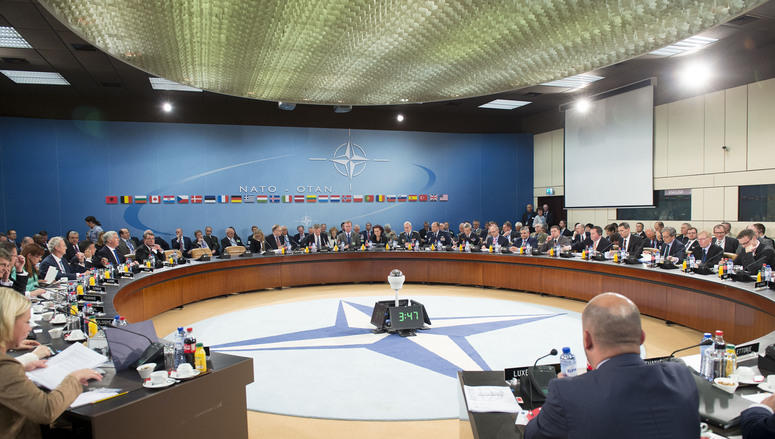24 Jun. 2015
Defence Ministers on Wednesday (24 June
2015) took key decisions on strengthening the Alliance’s collective
defence, including by increasing the strength and capability of the NATO
Response Force. “We have just taken another step forward in adapting
NATO to our changed and more challenging security environment,” said
Secretary General Jens Stoltenberg, adding “we are clearly making a lot
of progress”.

NATO Defence Ministers decided on air, maritime, and special
forces components of the enhanced NATO Response Force (NRF). The NRF
will now consist of up to 40,000 personnel – a major increase from the
previous level of 13,000. Ministers further took measures to speed up
political and military decision-making, including authority for NATO’s
Supreme Allied Commander Europe to prepare troops for action as soon as a
political decision is made. Allies also approved a new concept of
advance planning.
Allies finalized details on the six small headquarters being set up in Bulgaria, Estonia, Latvia, Lithuania, Poland, and Romania. “They will each consist of around 40 people, and will play a key role in planning, exercises, and assisting potential reinforcement,” the Secretary General explained. In addition, ministers decided to establish a new Joint Logistics Headquarters, to facilitate the rapid movement of forces when necessary.
“We are carefully assessing the implications of what Russia is doing, including its nuclear activities,” the Secretary General said. He added that NATO is working on how to deal with hybrid threats, including through close cooperation with the European Union. “We do not seek confrontation, and we do not want a new arms race,” Mr. Stoltenberg said. He stressed, “we want to keep our countries safe... this is our job.”
The Secretary General welcomed that NATO’s very high readiness force “is now operational”, and that next year, it “will available to respond rapidly to any contingency.” He further welcomed the announcement by US Secretary of Defense Ash Carter on the pre-positioning of equipment and enablers in Europe, calling it proof of “a truly transatlantic effort to reinforce our collective defence.”
Ministers reviewed defence spending figures, in light of the commitment made by Allied leaders last September to increase defence spending over the coming decade. “The picture is mixed,” the Secretary General said, adding that “while some progress has been made, we need to see more.”
The defence ministers also endorsed a defence capacity building package for Moldova. The Secretary General noted that Allies look forward to finalizing a defence capacity building package for Iraq “as soon as possible.”
Allies finalized details on the six small headquarters being set up in Bulgaria, Estonia, Latvia, Lithuania, Poland, and Romania. “They will each consist of around 40 people, and will play a key role in planning, exercises, and assisting potential reinforcement,” the Secretary General explained. In addition, ministers decided to establish a new Joint Logistics Headquarters, to facilitate the rapid movement of forces when necessary.
“We are carefully assessing the implications of what Russia is doing, including its nuclear activities,” the Secretary General said. He added that NATO is working on how to deal with hybrid threats, including through close cooperation with the European Union. “We do not seek confrontation, and we do not want a new arms race,” Mr. Stoltenberg said. He stressed, “we want to keep our countries safe... this is our job.”
The Secretary General welcomed that NATO’s very high readiness force “is now operational”, and that next year, it “will available to respond rapidly to any contingency.” He further welcomed the announcement by US Secretary of Defense Ash Carter on the pre-positioning of equipment and enablers in Europe, calling it proof of “a truly transatlantic effort to reinforce our collective defence.”
Ministers reviewed defence spending figures, in light of the commitment made by Allied leaders last September to increase defence spending over the coming decade. “The picture is mixed,” the Secretary General said, adding that “while some progress has been made, we need to see more.”
The defence ministers also endorsed a defence capacity building package for Moldova. The Secretary General noted that Allies look forward to finalizing a defence capacity building package for Iraq “as soon as possible.”
No comments:
Post a Comment